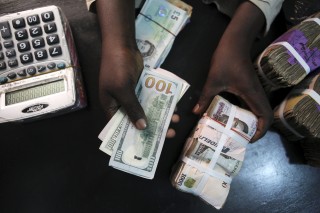The Bankers Committee has proposed to establish a database of suspected electronic fraud in the banking industry with the aim of blacklisting suspected fraudsters. In addition to other steps that have been set up to increase trust in the financial sector, this database should significantly reduce electronic fraud.
The committee is made up of the Central Bank of Nigeria, CBN, Nigeria Deposit Insurance Corporation, NDIC and chief executives of banks.
The system will track and block fraudulent financial transactions and the pattern; it will also track the brains behind them. According to Managing Director/Chief Executive, Access Bank Plc, Mr Herbert Wigwe, “Once that database is set up and there is suspected case going through the system we can have ways of ensuring there is a strong deterrent for people who are known as fraudsters within the system.”
It is commendable that the proposed system will also remove repeat offenders from the banking system. Victims of internet fraud may wish that this had been done earlier to protect them. The thought of not being able to operate an account all through a person’s life should be frightening enough to deter criminals.
Femi Fadairo, Head, Industry Security, NIBSS, at the Cyber Security and Banking Fraud Summit 2016, held in Lagos, noted that although electronic fraud has reduced following the introduction of the Bank Verification Number, BVN, it still remains an issue of concern.
He said, “1,461 fraud cases were reported in 2014 with an attempted fraud value of 7.8 billion naira, but they were eventually able to steal about 6.2 billion naira. That is a success rate of over 80 percent. This means that every ten times someone tries to defraud, the person will be successful eight times.
“However, in 2015, we had a total of 10,743 fraud cases reported, with a value of about 4.3 billion naira and the actual loss was about 2.2 billion naira. From these statistics, we can see that the success rate has decreased to 50 percent. Also, the value of attempted fraud and the actual losses reduced. Although we had more fraud attempts reported, many of those frauds did not sail through, as compared to 2014,” he said.
Nigeria is still battling with internet fraudsters popularly called yahoo boys. With a laptop and an internet connection, Nigerians and foreigners have been deprived of their hard earned wealth.
One mode of operation of these fraudsters is called phishing; details of a person’s credit card, debit card or internet banking details are obtained through fraudulent SMS or hacked and money transferred to the fraudsters’ accounts.
In 2016, a Nigerian known as Mike was arrested by the Interpol for internet fraud worth $60 million. Investigations revealed that his operations involved using malware to take over systems to compromise emails, as well as romance scams.
The BBC reports that Mike also allegedly ran a money laundering network in China, Europe and the US.
The network compromised email accounts of small to medium-sized businesses around the world including in Australia, Canada, India, Malaysia, Romania, South Africa, Thailand and the United States.
They would then send fake messages to buyers with instructions to make a payment to a bank account under their control.
The other strategy they used was to take over the email account of a high-level executive and give instructions to transfer money into a bank account they controlled.
The Economic and Financial Crimes Commission, EFCC, who was involved in the arrest of Mike, has been active in arresting and prosecuting these scammers. However, their efforts need to be given a boost by putting an ironclad system that provides evidence of financial crimes.
The hope is that the Bankers Committee will synergise with security agencies in building the database in order to adapt to the dynamic nature of electronic fraud. For instance, Ponzi schemes that promise as much as 50 percent on return of investment are the latest in the list of e-frauds that the committee and security agencies should be worried about.








